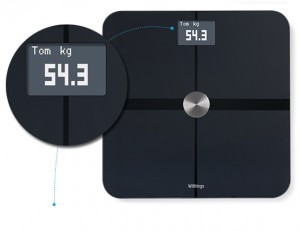Kodi (XBMC) & EyeTV & Logitech Harmony
Ist ist ein Problem welches ich schon immer habe. Inhalte (Filme, Serien, Dokus, usw.) sind auf dem Rechner, ein Teil aufgenommen mit dem Receiver und somit auf dessen Festplatte. Musik nicht zu vergessen, was aus verschiedenen Quellen kommt wie Spotify oder der Festplatte.
Ich wollte mal XBMC wieder ausprobieren, welches jetzt Kodi heisst. Sieht gut aus, Funktionen für den automatischen Coverdownload usw. sollten den meisten bekannt sein.
Es gibt nun auch (wieder) ein Plugin für Netflix was mich sehr gefreut hat, da ich hier ein Abo habe.
Da mein altes Macbook am TV im Wohnzimmer hängt, habe ich hier oft per Mobile Mouse App am iPhone oder iPad, Inhalte am Rechner konsumiert. Aber es ist mühselig immer alles umzuschalten, obwohl das dank der Logitech Harmony 700 eh schon gut funktionierte.
Durch Zufall bin ich auf EyeTv von Elgato gestoßen und dachte mir dass ist genau das was ich will. Es gibt auch ein Plugin für Kodi, was aber leider beim Umschalten sehr lange braucht. Aus diesem Grund setze ich das Plugin nicht ein.
Man sollte auch dazu sagen, dass man mit dem EyeTv auch Aufnahmen machen kann, wie eine Time-Shift Funktion bereitgestellt ist. Die Dateien speichere ich auf meinem NAS und werden automatisch zur Kodi-Library hinzugefügt :^)
Die Konfiguration war nicht so einfach… leider ist hier die Harmony nicht so clever… aber für den Mac gibt es die App Remote Buddy. Hier können verschiedene Befehle programmiert werden.
Damit das auch mit einer Harmony funktioniert muss ein kleiner Handstand gemacht werden:
- Harmony als EyeTv Fernbedienung ausgeben
- Befehle für einzelne Aktionen belegen (Fleißarbeit)
Aber mein jetziges Setup ermöglicht mir folgenden Workflow:
- Geräte werden über den Button “Watch TV” auf der Harmony eingeschaltet (TV, AV-Receiver, SAT-Receiver)
- Über den Roten Button wird EyeTv aktiviert und kann somit TV schauen
- Über den Blauen Button wird Kodi aktiviert und kann hier alle Medieninhalte aufrufen.
Hier noch ein kleines Demo-Video…
Hier sieht man dass der Vollbildmodus manuell eingestellt werden muss. Als Workaround den Receiver immer eingeschaltet lassen, somit wird die Einstellung auch gespeichert.
Es scheint so, als wäre das der heilige Gral für mich :^)



